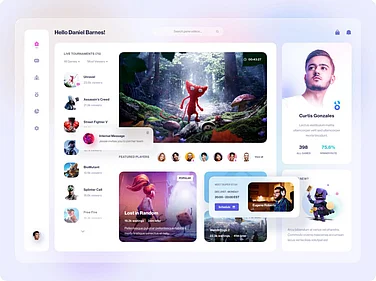Magic Bus has been recognised as one of India’s Best Employers Among Nation-Builders - 2021, by Great Place To Work Institute – India.
In conversation with Mr Jayant Rastogi, Global CEO, Magic Bus India Foundation
What is the main objective of the Magic Bus India Foundation? How do you plan to achieve your goal of poverty alleviation from the country?
With a vision to bring children and young people out of poverty, Magic Bus enables children to complete secondary education, delay their age of marriage, and skill young people to be in sustainable livelihood opportunities. We work with their ecosystems – their parents, peers, community, and local institutions to ensure they act as a network of support and encouragement to move a person out of poverty. Working with their communities and families, Magic Bus’ programmes teach life skills and build resilience.
Advertisement
Our youth-centred Livelihoods Programme connects the aspirations and potential of young people to available livelihood opportunities. We build their life skills and employability skills and map job potential based on individual strengths and mobility. We then place them in organised sector jobs, making them first-generation salary earners having secure careers.
During COVID19, please state the relief efforts conducted by Magic Bus?
The pandemic has been particularly harsh on marginalised families in India, affecting their livelihoods and affecting children’s education amongst many other challenges they have faced. Our response strategy was first to provide relief and help families recover from the effects of the pandemic. Our relief programme focused on awareness and social, behavioural change besides food and ration distribution to affected families. We have so far distributed dry rations and food to 80,000 families across India who were affected by the pandemic.
Advertisement
How did you manage the on-ground programmes during the pandemic?
Magic Bus adapted its programme and introduced innovative solutions to engage with children and youth to ensure life and employability skilling continues. An interim curriculum was developed and caters to the needs of both – programme participants with smartphones and those without. The programme is switched to virtual mode. As livelihood centres closed, the livelihood programme content for young people was customised to suit a virtual mode of learning.
Since the recovery of family and youth incomes continues to remain the need of the hour, we have expanded our Livelihood programme avenues to reach out to young people and adults, many of whom are first-time job seekers, out of work as well as underemployed due to pandemic induced lockdowns. In rural areas, we have welfare schemes in place as well as an Entrepreneurship Development programme to help aspiring entrepreneurs set up micro-enterprises.
Magic Bus, along with strategic partners like Bank of America, Fidelity India Private Limited, The United Nations Development Programme (UNDP) etc. have also launched support programmes to connect thousands of job seekers like fresh college graduates, those who have dropped out of school, those with sub-optimal jobs and those who lost jobs during the pandemic. We then link them with confirmed private-sector jobs available locally across sectors like E-Commerce / Logistics, Manufacturing, BFSI, Telecom and Retail.
What is your plan for the children with no or less access to online education, and how are you working to achieve it?
As mentioned, Magic Bus continues to engage with its children on the programme through virtual mode. We have created virtual groups of school children to ensure that they are connected to learning. Small group sessions are conducted on virtual platforms such as conference calls and WhatsApp, Google Meet, and Zoom using a need-based curriculum.
Advertisement
What is the importance of life skill education according to you?
Children on the Magic Bus programme come from marginalised communities, who face interruptions in their education, leading to irregularity at school or to drop out of the education system completely, making it impossible for them to find a job in the organised sector and move out of the poverty cycle. Life skills help adolescents deal with challenges and to fend off destabilisers such as child marriage and child labour, helping them take action in situations where a mentor may not be around to help or intervene.
Our programme builds core life skills from a young age that are honed later into employability skills – basic skills like learning to learn, communication, teamwork and problem solving and managing self. They are also the core employability skills a young person requires to be employable in the organised sector, as defined by the International Labour Organization (ILO). As a result, children become confident, resilient and have higher perceived self-efficacy, greatly strengthening their ability to aspire, apply critical thinking skills, take decisions and address challenges.
Advertisement
The Magic Bus programme enables participants to become employable and self-reliant, helping themselves and their families move out of poverty.
Please share your long-term goals?
Since its inception in 2015, the Livelihood programme has reached out to over 50,000 young men and women. Our goal for Fy21-22 alone will be to transform the lives of more than 1 lakh young people and adults who are first-time job seekers out of work due to the pandemic and underemployed. The goal of our programmes going forward is to help families recover their incomes to pre Covid-19 income levels and ensure young people and adults are skilled and working in sustainable livelihood opportunities.
Advertisement
Innovation is in our DNA, and we are proud to be an organisation that has adopted technology to help us take bigger risks. In collaboration with a strategic funding partner, we are running a pilot for a high impact and AI-enabled blended learning and skilling programme, which is technology driven and self-learning driven. It has mentoring at the heart of it to equip and enable learners at a faster rate. This model will be a game-changer for the sector in the livelihood space. That would mean we will reach youth at scale across the country, at an effective economic cost.




















